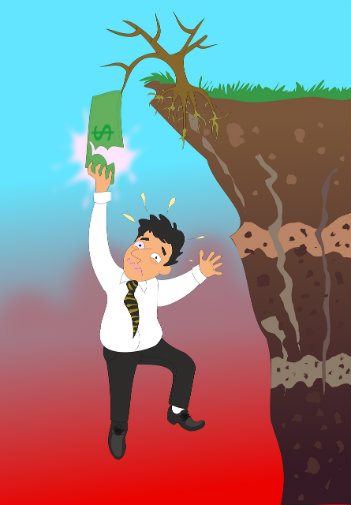Financial Advice For Young Adults
It’s an expensive era for young adults starting out in North America. The cost of living is high, credit is all too readily available and the temptation to accumulate credit card debt hard to resist. Never mind that most are also carrying debt from post secondary student loans. According to The College Investor, the Class of 2016 graduates with almost double the debt of the Class 2003. Young people also seem to be shunning saving – a recent survey of millennials found that 51.8% of those aged 18-34 have less than $1,000 in savings. This what living paycheck to paycheck looks like.
double the debt of the Class 2003. Young people also seem to be shunning saving – a recent survey of millennials found that 51.8% of those aged 18-34 have less than $1,000 in savings. This what living paycheck to paycheck looks like.
For those who feel that they are floundering in debt, bankruptcy may look like a reasonable option for getting out from under. The problem is – it’s not. Filing for bankruptcy while you are still in your 20s and 30s can lead to all kinds of problems further down the road. You may experience increased difficulty getting a job or buying a home, you will have to re-build your credit rating and all this after completing a supervised program and waiting 7 to 10 years before the bankruptcy is cleared from your credit and legal records. While filing for Chapter 7 or 13 bankruptcy may seem like an immediate solution to debt and creditor problems, it should be treated as a last resort.
Avoiding Bankruptcy As A Young Adult
Even if you feel you are falling behind financially there are many things you can still do to avoid bankruptcy. Here are a few important things to keep in mind:
Don’t Be An Ostrich
You’ve probably learned by now that hiding from scary problems doesn’t make them go away. Money is an emotional issue for many because it’s tied so closely to our sense of self-worth. But it’s also just numbers. Get in the habit of crunching yours. Look at the amounts you owe each month, make a budget with honest expense and income figures, look at the interest percentages you are carrying on debts and how much that adds to your bills each month. Face these figures head on and fully. You may also need to ask yourself some hard questions about your lifestyle and spending habits.
Ask For Help
You don’t have to suffer in silence. Get advice from a counselor or financial advisor. Go online. Take a course. There’s a wealth of information out there about saving, debt reduction and consolidation, and all kinds of financial planning. You may find that talking to someone about your money and debt woes will inspire and inform you to the point where you can make some decisions and start to turn things around.
What About Credit Card Debt
The best tip is to not accumulate it in the first place.If you find yourself making minimum payments on your balance each month, you are in too deep. Stop spending and focus on reducing your balance. The rule of thumb is to pay down the cards with the highest interest first. If your interest rates are high you may want to consider refinancing by transferring your balance or getting a low-interest consolidation loan. Once your credit card debt is under control, make sure your cards have the lowest interest rates possible and try to pay them off completely each month. This will be good for your credit score and prevent interest payments from creeping up.
Are There Other Sacrifices To Make?
Ask yourself if there are sacrifices that could be made before looking more closely at bankruptcy. Do you have assets you could sell? Can you live without a car for a year? Can you get a roommate to help split living expenses? Could you take on a second job, or do you have a skill or hobby that could be monetized? Some of these solutions will be hard to even contemplate but do it anyway if it saves you money and gets you out of debt.
Bankruptcy can be avoided if it’s possible. It’s an extreme solution to an extreme problem and you may find that with some clear thinking and help, a little determination and some patience, you might not need it as a young adult.


